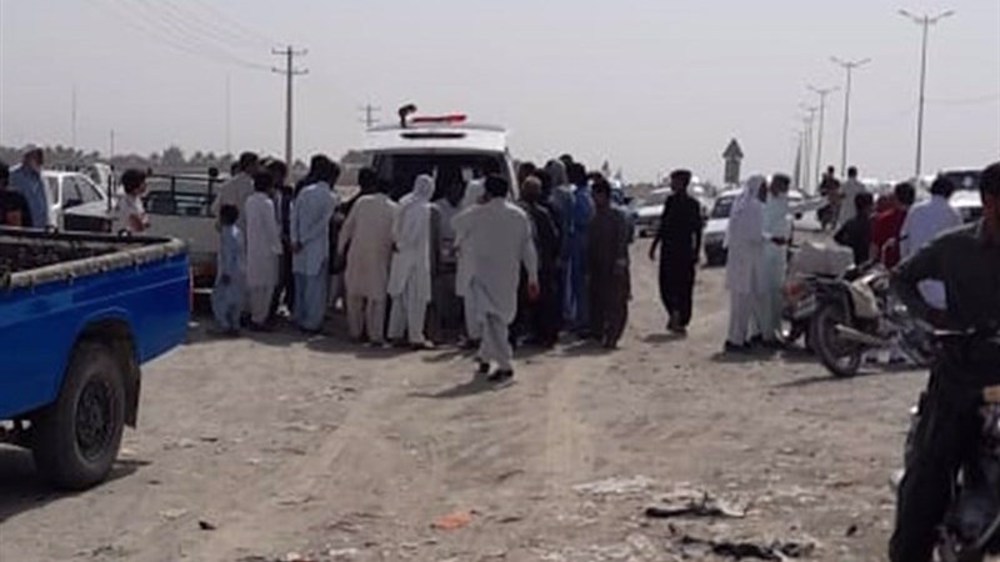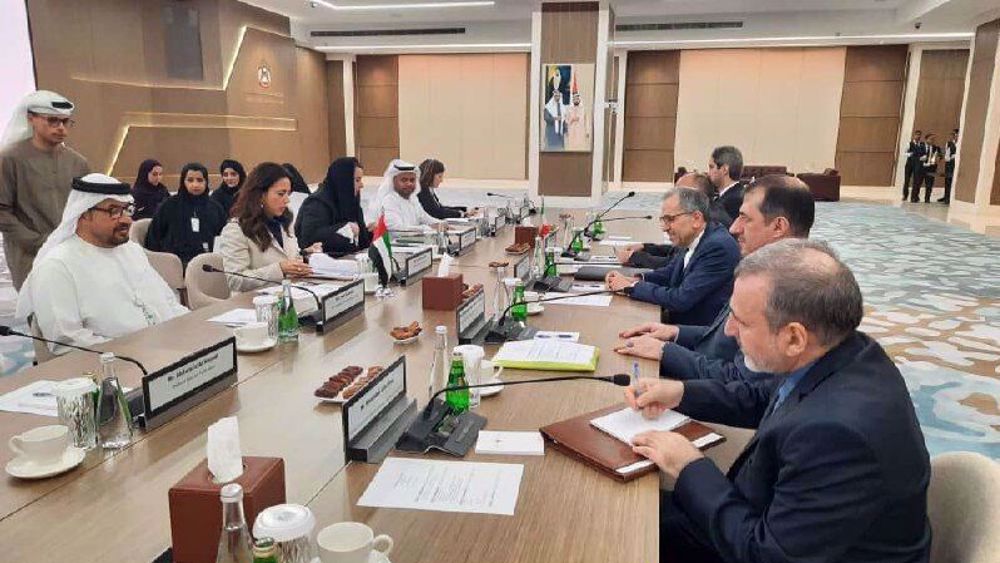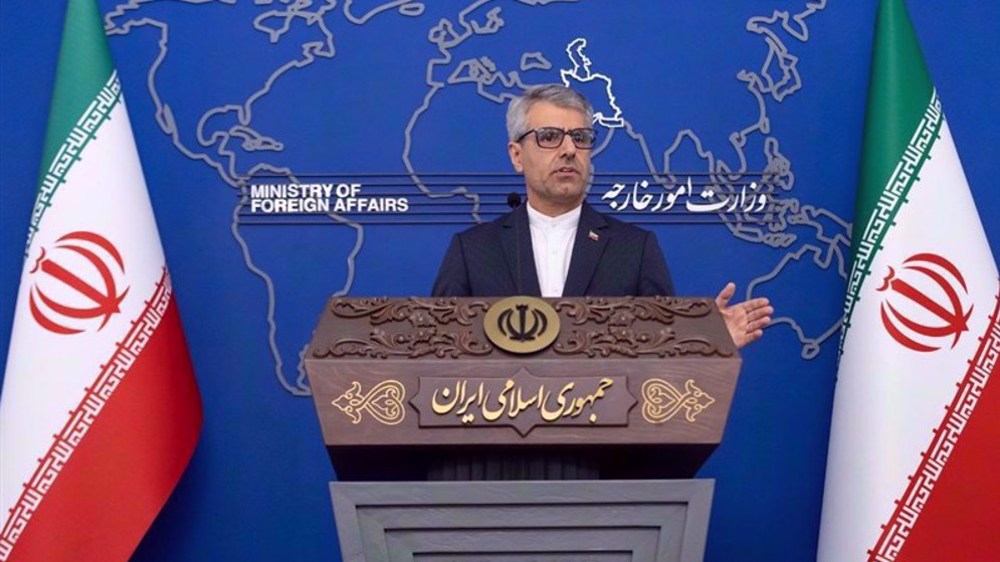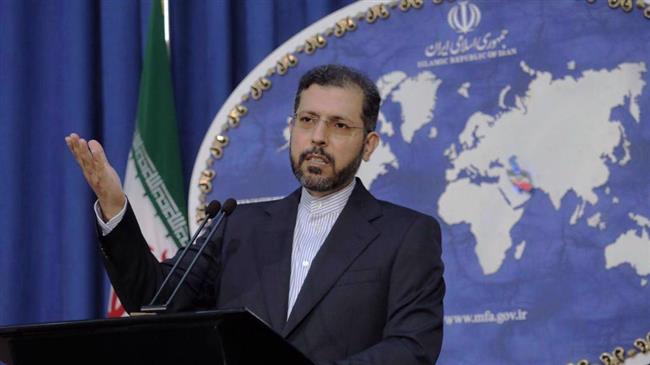Iran: GCC hostage to excessive demands of 'a raucous minority' among its members
Iran’s foreign ministry spokesman has strongly rejected “baseless and repetitive” allegations in the final statement of the latest meeting of the Persian Gulf Cooperation Council (GCC), noting that the council has been taken hostage by "a raucous minority" of its member states.
Speaking to reporters on Thursday, Saeed Khatibzadeh dismissed the council’s final statement on Iran’s nuclear program at the end of its 148th meeting, saying, “The GCC is practically hostage to excessive demands emanating from the failed policies of a raucous minority of its member states.”
He also slammed the council for its double-standard policies toward Iran, which on the one hand, claims to be seeking improved ties with Tehran, but on the other, levels baseless charges again the Islamic Republic.
The Iranian spokesman said taking such contradictory positions toward Iran will weaken “dialog-based approaches,” and turn the region into a stockpile of Western companies’ weapons, thus paving the way for foreign interference in the region.
Rejecting the GCC’s claims about Iran’s nuclear program, Khatibzadeh said, “The Islamic Republic of Iran has been constantly complying with international law and its obligations. Therefore, it allows no interference in its nuclear and missile programs as well as issues related to its military policies and deterrent defense. [Therefore,] these countries better start fulfilling their outstanding commitments toward international organizations, including the International Atomic Energy Agency.”
“Those [GCC member] states whose interventionist policies in other countries have led to massacre of innocent civilians, especially in Yemen, and spread of insecurity and terrorism in the region, are trying through projection, to cover up their human rights-related crimes and evade international punishment,” Khatibzadeh said.
He expressed hope that the GCC member states would stop issuing outdated statements, pay more attention to regional realities, and reorient their approaches toward promotion of regional dialogue.
“The Islamic Republic of Iran, based on its own strategic views and principled policies, considers interaction and cooperation the main solution to regional problems and welcomes any positive initiative aimed at promoting relations on the basis of international rules and regulations,” he said.
Khatibzadeh’s remarks came in response to the latest GCC statement on Wednesday in which the council members claimed that it would be dangerous to separate global powers' nuclear deal with Iran from Tehran's missile program and "destabilizing" behavior” in the region.
The GCC member states added that they should be involved in the ongoing negotiations with Tehran in the Austrian capital, which aim to revive Iran’s nuclear deal with world powers, officially known as the Joint Comprehensive Plan of Action (JCPOA).
Since April, representatives from Iran and the P4+1 group of countries – Britain, France, Germany, Russia and China – have been engaged in talks in the Austrian capital aimed at revitalizing the JCPOA and bringing Washington back to compliance.
The United States has appointed a delegation in Vienna but it is not attending the Joint Commission talks directly as Washington is no more a party to the JCPOA.
Former US president Donald Trump abandoned the deal and reimposed the anti-Iran sanctions that the JCPOA had lifted. He also placed additional sanctions on Iran under other pretexts not related to the nuclear case as part of the “maximum pressure” campaign.
Following a year of strategic patience, Iran resorted to its legal rights stipulated in Article 26 of the JCPOA, which grants a party the right to suspend its contractual commitments in case of non-compliance by other signatories, and suspend some of the restrictions imposed on its nuclear energy program.
Now, the new US administration says it wants to compensate for Trump’s mistake and rejoin the deal, but it is showing an overriding propensity for maintaining some of the sanctions as a tool of pressure.
Tehran insists that all sanctions should first be removed in a verifiable manner before the Islamic Republic reverses its remedial measures.

Two Basij forces killed in terrorist attack in southeastern Iran

Iran ready to strengthen ties with UAE based on ‘mutual interests’: Deputy FM

Iran remains steadfast in its ‘principled positions,’ says Foreign Ministry
Iran releases 1st video of Israeli-linked ship seized last April
Israel threatens to attack city near Syria’s capital
We won’t let Netanyahu sacrifice captives: Families
Egypt reaffirms ‘unwavering support’ for Palestinian cause ahead of emergency Arab Summit
VIDEO | Press TV's news headlines
Iran to keep current subsidized exchange rate in next year's budget
Iran will change military tactics, techniques based on threats: Top Cmdr.
Israeli bulldozers demolish homes in West Bank; Hamas urges UN to stop 'war crimes'










 This makes it easy to access the Press TV website
This makes it easy to access the Press TV website